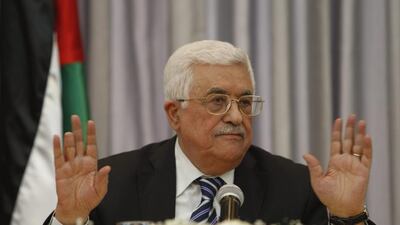Last week the Palestinian Supreme Court in the West Bank ruled that local elections slated for October 8 – the first in a decade – would be postponed. The announcement followed a Gaza court ruling to annul candidate lists affiliated with the Fatah party in the Hamas-run coastal strip, and the inability to hold elections in Israeli-occupied East Jerusalem. The Islamist party had also complained about harassment of its supporters in the West Bank.
The decision to delay the elections was expected after the Palestinian president Mahmoud Abbas instructed the legislature to look into “serious irregularities” in the election process.
The chasm between Fatah and Hamas was too wide for the elections to take place. Yet many had hoped they would, and the decision to hold them generated much interest. The candidate lists included West Bankers and Gazans, independents and establishment candidates, family and tribal members, men and women.
Municipal elections did take place in 2012, but only in some parts of the West Bank and without the participation of Hamas. Mr Abbas had been reluctant to call for local elections again: last time out, his party’s nemesis scored a landslide victory.
This time around, the various election campaigns showed how deeply polarised Palestinians remain. Both Fatah and Hamas accused each other of cracking down on candidates in the run-up to the poll.
Fatah warned that it would expel any member who runs in an electoral list that’s not under the aegis of the party. In a town east of Khan Younis in the Gaza Strip, a Fatah campaign coordinator was abducted and beaten. In Nablus, the home and car of Mohammed Dweikat, a young engineer, was shot at after he made public that he was leading a list of technocratic candidates to run in the mayoral elections. Even Israel played a role: some Hamas-affiliated candidates in the West Bank said they were threatened by Israeli authorities.
In the Gaza Strip, Hamas had been making efforts to cast itself as the pious alternative to the nominally secular Fatah party. Hamas’s supporters kick-started their electoral campaign with pictures of citizens in the besieged coastal strip holding banners that read: “Our mosques have become more beautiful and filled with believers.”
Various parties had called for the elections to be postponed, even though the Council of Palestinian Human Rights Organisations had warned that such a delay would have “dire consequences”. The calls to postpone came chiefly from the Palestinian Bar Association, which said the poll couldn’t go ahead as it excluded East Jerusalem, and from Fatah leaders in Nablus.
As families, tribes and political parties vied for spots at more than 400 local councils, a recent poll predicted a tight race between Fatah and Hamas, in which each would earn roughly two-thirds of the seats, with the remainder split between independents and Leftist parties.
But even if the elections did take place in a few weeks time and neither party emerged as a clear winner, the polls could have still served as a popularity indicator, or a bellwether for a presidential and parliamentary ballot, not to mention an exercise in democracy badly needed by each party struggling for popular legitimacy.
Dalia Hatuqa is a journalist in Washington DC and the West Bank
On Twitter: @daliahatuqa

